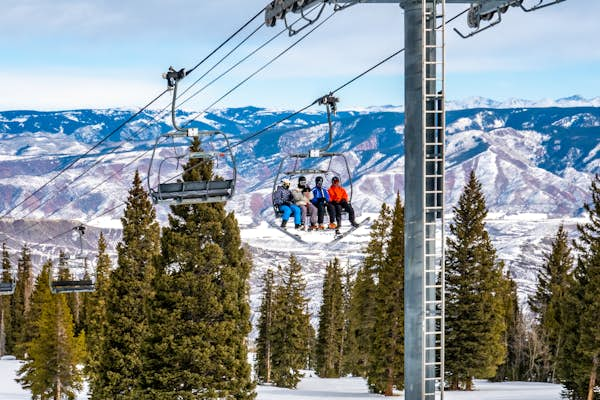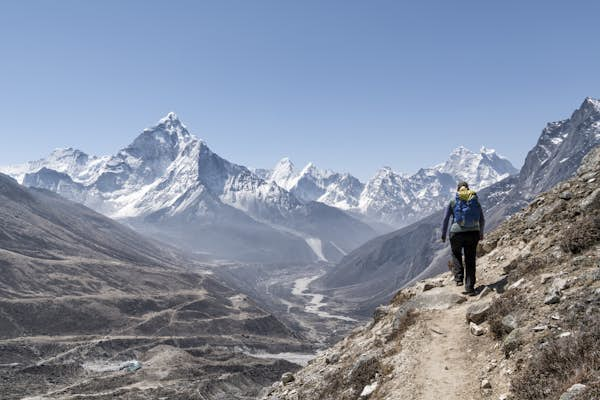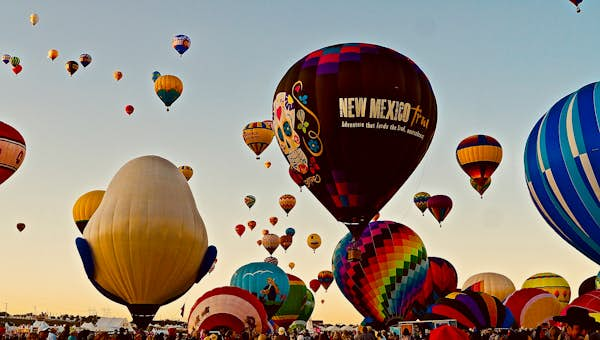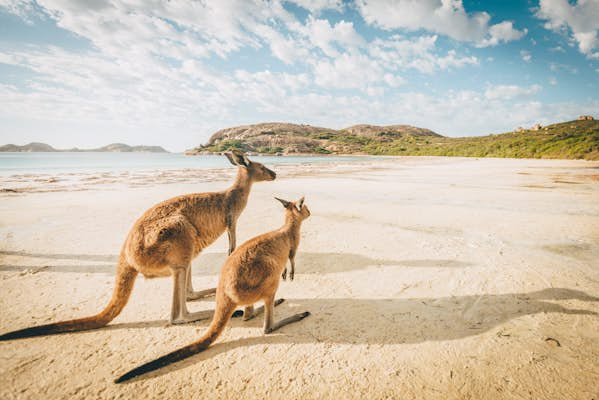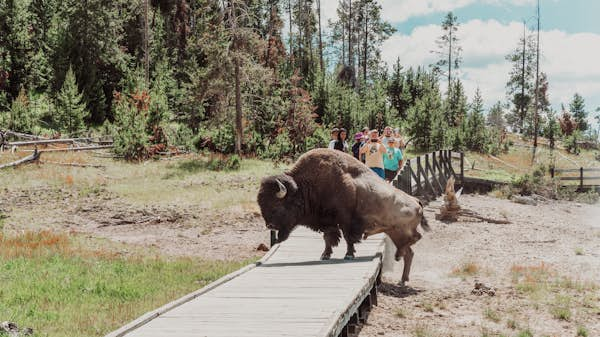The combination of champagne powder, endless blue skies, mammoth mountains and a live-to-ski ethos makes skiing in Colorado the stuff of legend. From cruisers and tree runs to back bowls and terrain parks, Colorado is one of the country’s best and most varied places to ski.
With more than 30 resorts to choose from, this state really does have a mountain – and ski town – for everyone.
1. Aspen
Vibes: Aspen is a historic mining town turned posh go-to with a heady, artsy vibe. Mountain chic boutiques and galleries line the quiet streets, while Aspen Mountain overlooks it all.
What to do when you’re not on the slopes: Snowshoe through the sublime White River National Forest with a guide from Aspen Center of Environmental Studies. Or meander through the edgy Aspen Art Museum, with ever-changing exhibits and a spectacular rooftop cafe.
Where to rent equipment: Ski Butler delivers high-end equipment directly to you. Boots uncomfortable? Rentals are switched out within 45-minutes, even mountainside.
Where to eat: No place does après better than Ajax Tavern with its sunny mountainside patio and elevated pub grub. Pair a Wagyu double cheeseburger and truffle fries with some bubbly. BYO fur blanket.
Where to stay: Superb service and relaxed Western elegance are trademarks of the Hotel Jerome, an 1889 landmark built during Colorado’s silver heyday. Rooms are modern and plush while the common areas burst with period antiques and cowboy art.
Pass and tickets: Aspen’s four sister resorts are on the Ikon Pass. Lift tickets also allow unlimited access to each ($174–254 per day, depending on the month).
How to get there: Aspen’s small airport offers direct flights to a few US cities. Alternatively, it’s 190 miles to Denver; Roaring Fork Express and Colorado Airport Express provide shuttle services from Denver International Airport, which is around a four-hour drive.

2. Breckenridge
Vibes: Upbeat and down-to-earth, Breckenridge is nestled in a gorgeous mountain valley. Its jewel-box historic district is dotted with picturesque shops and eateries in a range of budgets.
What to do when you’re not on the slopes: Lean into Breckenridge’s Arts District, Breck Create: catch a show or tour the public art, including a giant troll in the forest. Then meet some sweet huskies and learn all about mushing on a dog sledding tour.
Where to rent equipment: Family-run Blue River Sports provides friendly and knowledgeable service. Gear is high quality and well-priced, with breakage insurance included.
Where to eat: Indulge in the tasting menu at Rootstalk, a seven-course experience in elevated comfort food, the brain-child of James Beard Award-winning chef Matt Vawter.
Where to stay: The Bivvi is an unexpectedly upscale hostel in a big log cabin. Bright and cozy common spaces invite socializing; a firepit and a 10-person hot tub help. The homemade breakfast and free bus service to the resort are cherries on top.
Pass and tickets: Breckenridge is on the Epic Pass. For limited ski days, consider the Epic Day Pass ($116–135) instead of the vastly more expensive lift ticket ($269).
How to get there: Breckenridge is 80 miles from Denver, about a 1½-hour drive. Epic Mountain Express and Peak 1 Express provide shuttle services or take Snowstang, a seasonal public bus.

3. Vail
Vibes: Vail oozes mountain luxury with a 1960s-built Bavarian-themed village complete with twinkling lights and cobblestone streets. Spend some time exploring the chichi restaurants, bars and boutiques.
What to do when you’re not on the slopes: Enjoy a day of pampering at the luxe Spa at the Four Seasons, offering all manner of body treatments and massages. Want more time outdoors? Try winter fly fishing with Vail Valley Anglers.
Where to rent equipment: Known for high-end, nearly-new equipment Black Tie Ski Rentals brings your rentals (and a van full of alternatives) directly to you.
Where to eat: Nab a seat at the bar at Sweet Basil, a longtime local fave serving innovative American fare focused on locally sourced products. For a table, reserve a month ahead (no joke!).
Where to stay: Swanky hotels dot the village, but for a true ski-in ski-out stay, opt for the upscale Lodge at Vail or the Grand Hyatt Vail, at the base of Gondola One and Cascade lift, respectively.
Pass and tickets: Vail is on the Epic Pass. Only skiing a few days? Opt for the Epic Day Pass ($116–135) instead of the hefty lift ticket ($295).
How to get there: Eagle County Regional Airport is 35 miles west of Vail, with several domestic flights. Alternatively, Vail is a 2-hour drive from Denver. Bustang provides bus services, while Epic Mountain Express and Peak 1 Express offer shuttles from Denver International Airport.

4. Crested Butte
Vibes: Quirky and laid-back, Crested Butte is an end-of-road little town with one of Colorado’s largest historic districts. Colorful Victorian-era buildings line the main drag, home to breweries, boutiques and bike shops.
What to do when you’re not on the slopes: Do like the locals do and hit CB’s winter biking trails in the gorgeous Gunnison Valley; fat tire rentals are available at Big Al’s Bicycle Heaven. Alternatively, give your legs a break and take a cozy sleigh ride with your boo, mitten-hand in mitten-hand.
Where to rent equipment: Locally owned Crested Butte Sports is the go-to for high-quality gear, good prices and top-notch service.
Where to eat: The Secret Stash is one of the hottest tickets in town; an award-winning pizzeria with a boho vibe and teahouse seating, including prayer flags.
Where to stay: CB is dotted in B&Bs and vacation rentals, many in historic buildings like Scarp Ridge Lodge. (There are also loads of vacation rentals at the resort). Search VRBO or AirBnB for the widest net.
Pass and tickets: CB is on the Epic Pass. For short ski trips, buy the Epic Day Pass ($89–104); lift tickets are $169.
How to get there: Gunnison-Crested Butte Regional Airport is 30 miles south of CB, with flights (mostly) to Denver. Otherwise, it’s about a 4½-hour drive to Denver; Bustang runs bus services between the two or hire Colorado Mountain Transportation from Denver International Airport.
Things to know before you ski in Colorado
-
Skiing at altitude is no joke, especially in Colorado, where most resorts sit between 9000 and 13,000ft. If possible, give yourself a day or two to acclimate before hitting the slopes – take it slow and drink lots of water! If you experience severe nausea, headache or dizziness, consult a doctor or simply head to a lower altitude.
-
For the best ski conditions, head to the hills between January and March, when the snow is fresh, grippy and deep, and the mountains are fully open.
-
If you’re on a budget, skiing early or late in the season (before December 15 and after April 1) often means deals on day passes and lodging but also potentially patchy snow and a limited number of skiable trails.
-
On the mountain, skiers below you have the right of way – remember, they can’t see you, so give them space. Exception: if you’re merging onto a run, look uphill to avoid cutting someone off.
-
Don’t duck ropes! They’re there to keep skiers safe from avalanche risk, exposed or dangerous terrain and to prevent people from being stranded with no way of getting back to a lift.
-
Sure, cannabis is legal in Colorado, but don’t partake on the slopes – public use is illegal and potentially dangerous to yourself and others.
-
Traffic on the I-70 can be bumper-to-bumper, especially on winter weekends. Leave early to make the best time; check COtrip for real-time road conditions.
